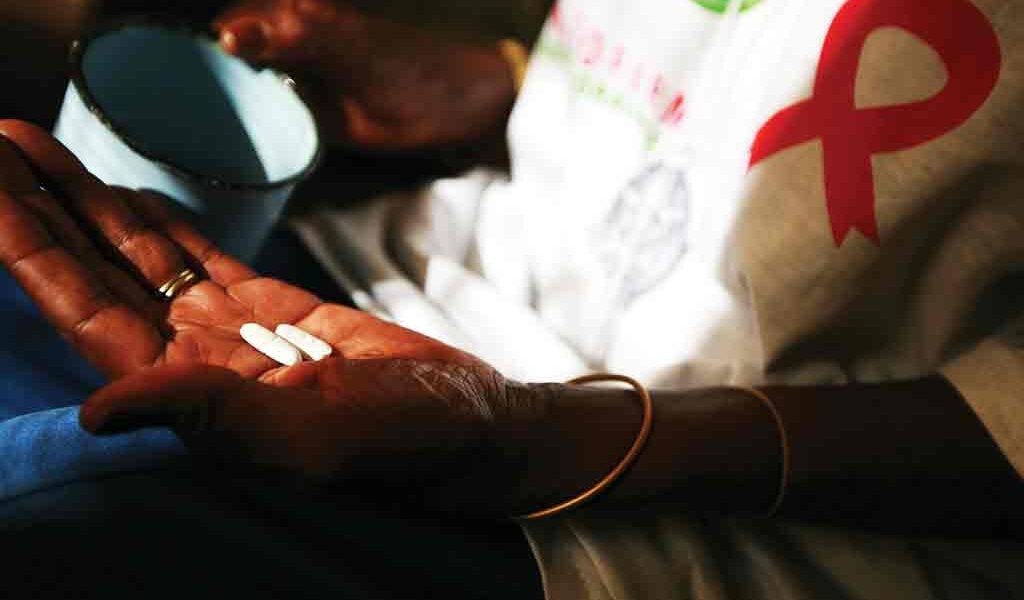- Behavioral change continues to hinder progress
- Over 10 thousand new infections every year
- Botswana doing well in the treatment area
- By end of 2016, the mother to child transmission rate was 1.4
per-cent - Over P1 Billion needed annually for new HIV treatment
KAGO KOMANE
While Botswana has made commendable process in the fight against HIV especially in the area of treatment, behavioral change continues to be the biggest impediment in reaching epidemic control.
Last year (2016), Botswana adopted World Health Organization (WHO)’s new guidelines on treatment of HIV following the organization’s advice to countries that anyone infected with HIV should begin antiretroviral treatment as soon after diagnosis as possible. With its “treat-all” recommendation, WHO promised to remove all limitations on eligibility for antiretroviral therapy (ART) among people living with HIV; all populations and age groups are now eligible for treatment, a process that currently costs the government over a billion Pula annually to sustain.
In 2015, Botswana adopted Option B PLUS in an effort to eliminate Mother to Child transmission of HIV. By the end of 2016, the mother to child transmission rate was 1.4 per cent, while to date a total of 308,067 individuals have been placed on HIV treatment since the inception in 2002 of the National ARV programme.
Botswana is currently one of the few countries that has been identified as close to reaching the UNAIDS 90-90-90 targets for HIV/AIDS knowledge of status, treatment and viral load suppression at 90% by 2020, however there are still challenges that health experts say are regressing progress.
Public Health Senior Research Consultant Tshiamo Keakabetse says, “In spite of all the progress, Botswana, now a middle-income country faces many challenges including constricted funding and “blanket” approaches to HIV/AIDS intervention. The theme for this year’s World AIDS Day; Everyone Counts; could not have come at a better time especially in Africa where discriminatory laws are most predominant.”
He said stigma and discrimination occurs against those people who are either unable or unwilling to hide the fact that they have sex with partners of the same sex. The consequential evidence he says show
discrimination in the health services and a high level of violence. As a consequence, many sexual minority members are among the poorest and most marginalized members of society and have no social safety net. “They are at a high risk of engaging in transactional sex. There are virtually no programs in Africa focusing on prevention among men having sex with men, and most of them have unprotected sex with both their male and female partners. There is therefore an important link between the epidemic among men having sex with men and their women and children. It is urgent that the twin epidemics of HIV/AIDS and violence be tackled as part of HIV/AIDS and poverty reduction programs.”
The reason for inaction on these issues, he says, are not lack of tolerance, but lack of political will, discrimination and undue disrespect of human rights. “In Botswana, the HIV epidemic is widespread among the general populace however there are several key populations that are hardest hit by HIV. There is increasing effort at a national level to support these key affected populations, but legal and punitive barriers prevail, making HIV prevention and support efforts challenging.”
HIV prevalence among female sex workers (FSW) is high in Botswana at 61.9%, more than three times that of the general HIV prevalence. Despite more than 80% of sex workers reporting using condoms, female sex workers are often working in high-risk environments where circumstances can change depending on the client. Research in Botswana has found that in many instances sex workers can be paid additionally to not use condoms, or be forced to not use condoms by clients, increasing their vulnerability to HIV infection.
Keakabetse says that it is critical that HIV prevention efforts among these populations focus both on FSW and their clients. Furthermore, HIV testing remains low among female sex workers, at 54.8%. There is an increased need to encourage HIV testing among these populations, so that more FSW know
their status and can seek appropriate treatment if necessary.
“Another key affected population in Botswana is men who have sex with men (MSM). Homosexuality is illegal in Botswana and due to this punitive law, providing HIV services for this population is inherently difficult. HIV prevalence among this population is 13.1%. Estimations state that over 80% of MSM use condoms during sex, however stigma and discrimination towards this group is still highly prevalent, preventing MSM from seeking HIV testing services and support. Despite national strategic goals that aim to address these key affected populations within the epidemic, criminalization is impeding progress.” He said it is worth investing in young people in Botswana as a special group highly affected by HIV/AIDS. HIV knowledge among young people remains dangerously low.
Centre for Disease Control (CDC) Botswana HIV Counseling and Testing Public Health Specialist, Peter Loeto says men’s reluctance to test and get treatment for HIV is one of the factors that are delaying progress. He said this leaves men with high viral loads that end up creating new infections which is now holding the country back from achieving HIV epidemic control.
“A concerning number of males of ages 25 years and older do not know their status. This is an area of concern because this is the age group that usually has sexual relations with adolescent girls and studies by the USAIDS amongst others have shown that adolescent girls are getting more infected as compared to adolescent boys,” he said.
Gender inequality in Botswana is also fueling the epidemic among females. Factors such as early sexual debut and gender-based violence have increased their vulnerability to HIV. A recent study commissioned by Ministry of Health found that 28.9% of women over the age of 18 had experienced some form of sexual based violence in their lifetime.

